Odyssey 5.116-227
Odysseus does not explain himself. He just says it. When Calypso asks him the obvious thing—how can he choose an ageing Penelope and his own mortality over herself—and himself not ageing? With his only job, protecting her isolated house? The man acknowledges the facts of the case, and then just states the facts of his case: “But even so, I wish and I long, through all the days, / To get myself home and see my day of restoration.” Athena had been moved to real and felt poetry, outside her own experience, in Book 1: Odysseus, she said, “eager to make out just the hearth-smoke leaping up / From his mother land, longs to die a death.” I think precisely in not trying to explain or otherwise describe this longing, Odysseus renders it most purely and unfiltered for the rest of us, without psychoanalysis or the special pleading of a moral lesson.
Why does one long to be home? It almost feels a tautological question. What is ‘home’? That is a word which cannot be translated back into the Greek, and yet it dominates the way we experience the pull of the Odyssey in English. The Greek word in its place is οἶκος, more ‘house’ or ‘household’ than home. The word ‘home’, of such peculiar power in English, arises in translation mostly from the notion of νόστος, ‘return’ or ‘restoration’, as being implicit in the latter idea. Is there something to be made of the ‘seeing’, in the longing to see the day of one’s return? We ourselves are certainly drawn to the spectacle when hostages return, or lost siblings are reunited. In Proteus’ story, Agamemnon kissed his native earth in passion, upon his doomed return. There is a concentrated joy in such moments, which overflows even upon its disinterested witnesses. Less interesting are the moments that follow, the being home and doing the dishes.
I think Yeats has perhaps done Homer one better, in capturing this inexplicable longing, although for most of his auditors, as with Homer’s, the images do not belong to one’s own surroundings or experience. To be sure, the Irish poet says he will arise and go, as though away from home. But what he discovers at the lake seems to be a universal human apprehension, that in fact we all are hostages, displaced, with our every step on the pavement, from ‘the deep heart’s core’:
The Lake Isle of Innisfree
by William Butler Yeats
I will arise and go now, and go to Innisfree,
And a small cabin build there, of clay and wattles made;
Nine bean-rows will I have there, a hive for the honey-bee,
And live alone in the bee-loud glade.
And I shall have some peace there, for peace comes dropping slow,
Dropping from the veils of the morning to where the cricket sings;
There midnight’s all a glimmer, and noon a purple glow,
And evening full of the linnet’s wings.
I will arise and go now, for always night and day
I hear lake water lapping with low sounds by the shore;
While I stand on the roadway, or on the pavements grey,
I hear it in the deep heart’s core.
Mind you, what is not at all in Yeats’s vision is the coupling that seems to define Odysseus’ longing. Yeats will “live alone”. In a sense Odysseus has already found his Innisfree on Calypso’s isle; perhaps he’d have stayed there if he’d had a copy of Yeats to enchant him. But he wants to return to Penelope, whoever she is nowadays, and he cannot explain this to his jealous interlocutor. “For she is mortal, but you …” All the same, his brief and simple expression of longing seems to have the effect of seducing Calypso. His predicament, from the moment she found him half dead, bestriding a ship’s keel, has made her want to rescue and protect him. Her very name, Calypso, suggests hiding or concealing; Homer’s Greek for ‘veil’ derives from the same root. Her love, perhaps, is driven precisely by his loneliness and longing. And couple they do, goddess and man, as soon as he expresses it. Homer had earlier described their sexual encounters as ‘he who does not want, alongside she who wants’ (παρ’ οὐκ ἐθέλων ἐθελούσηι). I rendered ‘a man unwilling next a woman all too.’ But at the end of this passage, they do really seem to come together, without any qualification, in her hollowed cave’s deep core. Would we describe Odysseus as ‘unfaithful’?
The conjunction of God and man was a subject Michelangelo attempted on the ceiling of the Sistine Chapel. Homer’s version is Odyssey 5.
In Greek:


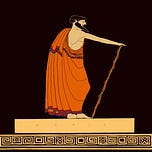

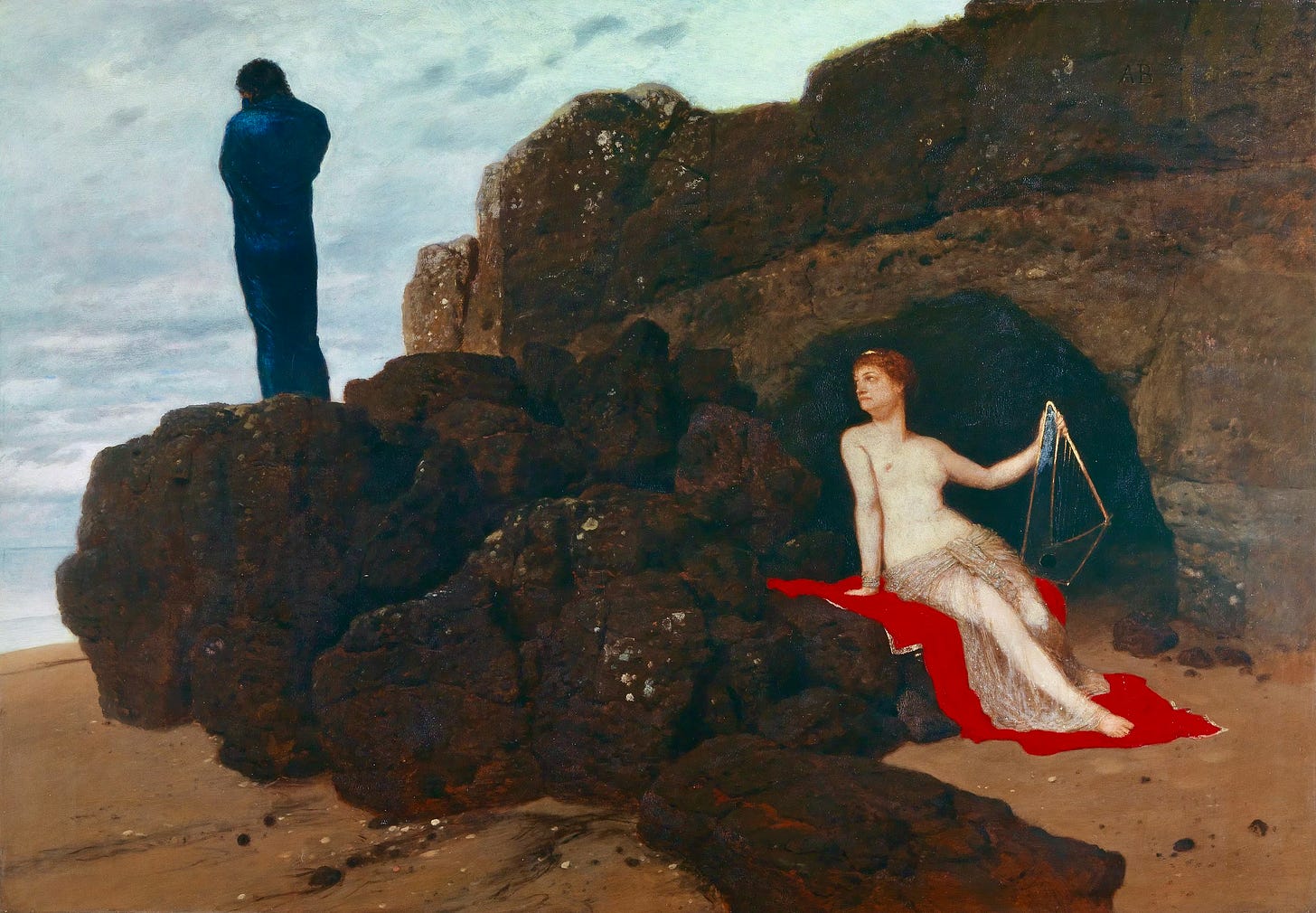


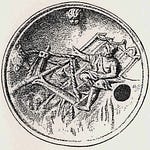
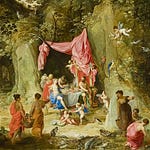
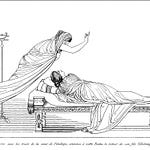
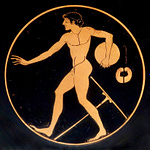


“For she is mortal, but you are deathless and free from ageing ...”: Homer in English